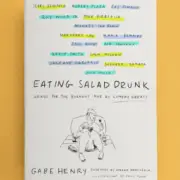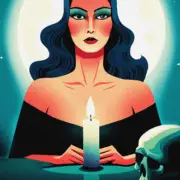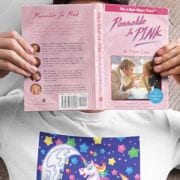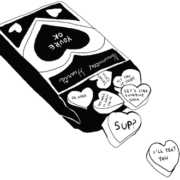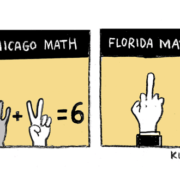BOOK EXCERPT: Eating Salad Drunk
Sometime around the turn of the sixteenth century, in the hills of central Japan, a Buddhist monk emerged from his seclusion, knelt before the bed of his ailing father, and composed a verse so full of worldly wisdom that it stuns us yet today:
Even at the time
When my father lay dying
I still kept farting.
The author of this flatulent ode, Yamazaki Sokan, was one of the founders of haikai—the forerunner and namesake of haiku poetry—and this poem was among the world’s very first haikus.
There’s a lot we English-speaking moderns don’t understand (and misunderstand) about haiku poetry, but perhaps our greatest error is thinking that haikus need to be serious. From its earliest days, the heart of haiku poetry was humor. These three-line, seventeen-syllable poems—composed communally and in the informal, everyday language of Japan’s lower class—tended toward the lewd and crude, the comical and lighthearted, and poets like Yamazaki Sokan were as likely to wax poetic about ponds and dewdrops as they were about excrement and urination. (Nature is nature, after all.) The roots of the haiku, in fact, are right there in the word itself: haikai literally means “comic verse.”
My own association with haiku humor began the very day I learned what a haiku was. It was freshman year of high school. I was sitting in the back of English class, steeling myself for another dreary analysis of Wuthering Heights, when Ms. Connolly brought out a laminated poster printed with a three-line poem and tacked it on the wall. It was National Haiku Day, she explained, and today we would all try our hand at poetry.
The rules of the form were simple: three unrhymed lines of five, seven, and five syllables each. If Ms. Connolly—bless her heart—thought this exercise might lull us into a state of Zen relaxation, thereby buying her an hour’s peace and quiet, she was certainly disappointed. It exploded instead into a rowdy competition, with all the aspiring class clowns trying to outwit each other in three-line, seventeen-syllable bursts. Before long, we had taken this peaceful poetic form to where adolescent boys inevitably take all things: the offensive, gross, and scatological.
In a moment of divine inspiration (with a hint of bowel discomfort), I wrote this gem:
I stare at the clock
Waiting for the bell, so I
Can finally poop.
With a better understanding of haiku history, Ms. Connolly might have bestowed upon us all bonus points for channeling the great Sokan. Instead we got pop quizzes every day for the next week.
Stand-up comedy and haiku poetry—two art forms separated by continents and centuries—have more in common than one might think. Both rely foremost on concision: Each word must be arranged in the right syllabic rhythm, with the perfect beat and punch, for the work to be effective. (Rodney Dangerfield would have been a great haiku poet. So would Mitch Hedberg.) Both employ wordplay: Traditional Japanese haiku poets leaned heavily on double entendre and puns. (Nishiyama Soin was particularly fond of the phrase tsuki idete, which could mean either moon or erection, depending on the context.) And both abide (loosely) by the Rule of Three, a principle that holds that things that come in threes are inherently funnier or more compelling than items in other denominations: the Three Stooges, Three Amigos, Goldilocks and the Three Bears, and just about every bar joke you’ve ever heard (a blonde, a brunette, and a redhead; a priest, a rabbi, and a minister).
In joke telling, this three-item rule usually takes the form of two set-up lines followed by a punch line. Take this haiku by the New York comedian Myq Kaplan:
Star Wars. Star Trek. Dune.
Battlestar Galactica.
Girls don’t sleep with me.
Or this by the legendary Elayne Boosler:
Thought I saw Groucho.
Moustache, glasses, funny walk.
Close, but no cigar.
Or this shameful confession from Ray Romano:
Just killed a spider.
Didn’t have to, but he saw
Me masturbating.
A teacher friend of mine once told me that when she teaches haiku, she has her students cut out “haiku glasses” from cardboard tubes; by peering through these cylinders at a patch of grass, a leaf, a puddle, the field of view is restricted, and the observer can focus on a small, contained area. Jerry Seinfeld may as well be looking through a cardboard tube when he tunnel-focuses on a hair on the bathroom wall, or the top button of a collared shirt, or the buckle on an airplane seatbelt. Sometimes comedy expands our scope to highlight profound truths about life and the cosmos; other times it narrows our view to the infinitesimal, the everyday, the subtle, and the subtly irritating. Observational humor contains the essence of haiku. It is comedy through a cardboard tube.
Strangely enough, there seems to be no better poetry for our burnout age than this five-century-old Japanese triplet. Haikus are the world’s shortest poems—snapshots of the world in its smallest distillations—and we are a generation that requires its information short and distilled. (And snapshotted, too, if possible, with a Juno filter please). With platforms like Twitter restricting the space in which we convey and consume our world, and traditional media rushing to meet our ever-shrinking capacity to concentrate, we now expect everything in bite-sized, meme-ified form. Haikus, in their brevity and appeal to the attention-deprived, may just be the poetry for these times.
To my delight, nearly every comedian I approached for this book was not only receptive but breathlessly eager to contribute. As I learned years ago in Ms. Connolly’s class, there is something addictive about writing within constraint. It brings out a creative ingenuity in the artist—a personal challenge to see how much can be done in a limited space. (Just think how much came out of Shakespeare’s ten-syllables-per-line iambic constraints, or Hemingway’s six-word-story challenge.) The challenge: Can you write a self-contained joke or bit using only seventeen syllables? And once I opened the tap, I couldn’t stop it. The haikus poured in.
I hope you enjoy reading these little droplets of wit and crudity as much as I’ve enjoyed collecting them. And I hope you find that this Zen poetry we call haiku—ancient and outmoded though it may seem—fits remarkably well in today’s fast-paced, short-spaced era of Twitter, TikTok, and dwindling attention spans. To quote one modern haiku master:
Who has time for more
Than seventeen syllables
These days anyway?
—GABE HENRY, EDITOR AND CURATOR
Excerpts:
“I’m huge on Twitter”
—An ancient proverb that means
Lonely in real life.
―JOEL KIM BOOSTER
Can I report a
Hostile work environment
If I’m self-employed?
—ERICA RHODES
I just want a house
Big enough to avoid the
People I live with.
—OPHIRA EISENBERG
Bad news. Doctor says
I must stop eating bacon
During my checkups.
—GEORGE WALLACE
Thought I saw Groucho.
Moustache, glasses, funny walk.
Close, but no cigar.
—ELAYNE BOOSLER
When my Wi-Fi says
It cannot connect I’m like
Are you my father?
—GIULIA ROZZI
Cafeteria.
Caféplus bacteria?
I will eat at home.
—MYQ KAPLAN
The future is now.
No, now. No, wait, now. No now.
Time to reminisce.
—PAUL LANDER
It’s a lovely day
To go for a run! I should
Tell my friend who runs.
—ALYSSA LIMPERIS
I only listen
To songs that made me horny
In 2008.
—JES TOM
“Don’t worry, he’s cool”
Is a bad way to describe
Your youth pastor friend.
—ATSUKO OKATSUKA
Tech companies are
Trying to harvest our brains.
Click if you agree!
—MICHAEL IAN BLACK
Just killed a spider.
Didn’t have to, but he saw
Me masturbating.
—RAY ROMANO
You can always tell
Who went to Catholic school:
They are atheists.
—MIKE BIRBIGLIA
Eggs over easy
Always has the appearance
Of a murder scene.
—JERRY SEINFELD
She ate Nutella
Not knowing it’d stay on her
Chin through two meetings.
—JO FIRESTONE
If I stop eating
Sugar, would I ever stop
Talking about it?
—MARIA BAMFORD
Hindsight is 20/
20. But I’ll never look
Back on that damn year.
—SASHEER ZAMATA
If you hold a shell
Up to your ear, you can hear
How lonely you are.
—EMMY BLOTNICK
Doctors always say
Just listen to your body.
Mine screams constantly.
—COLIN MOCHRIE
Accidentally
FaceTimed my doctor’s office.
The call was declined.
—APARNA NANCHERLA
Do anti-vaxxers
Have their own dating websites?
Hot shingles near you!
—ARIEL ELIAS
Therapy’s not cheap
But neither are the weighted
Plush sloths I buy drunk.
—SIERRA KATOW
BUY IT HERE!
*All author proceeds go towards Comedy Gives Back, a nonprofit that provides mental health, medical, and crisis support resources for comedians.
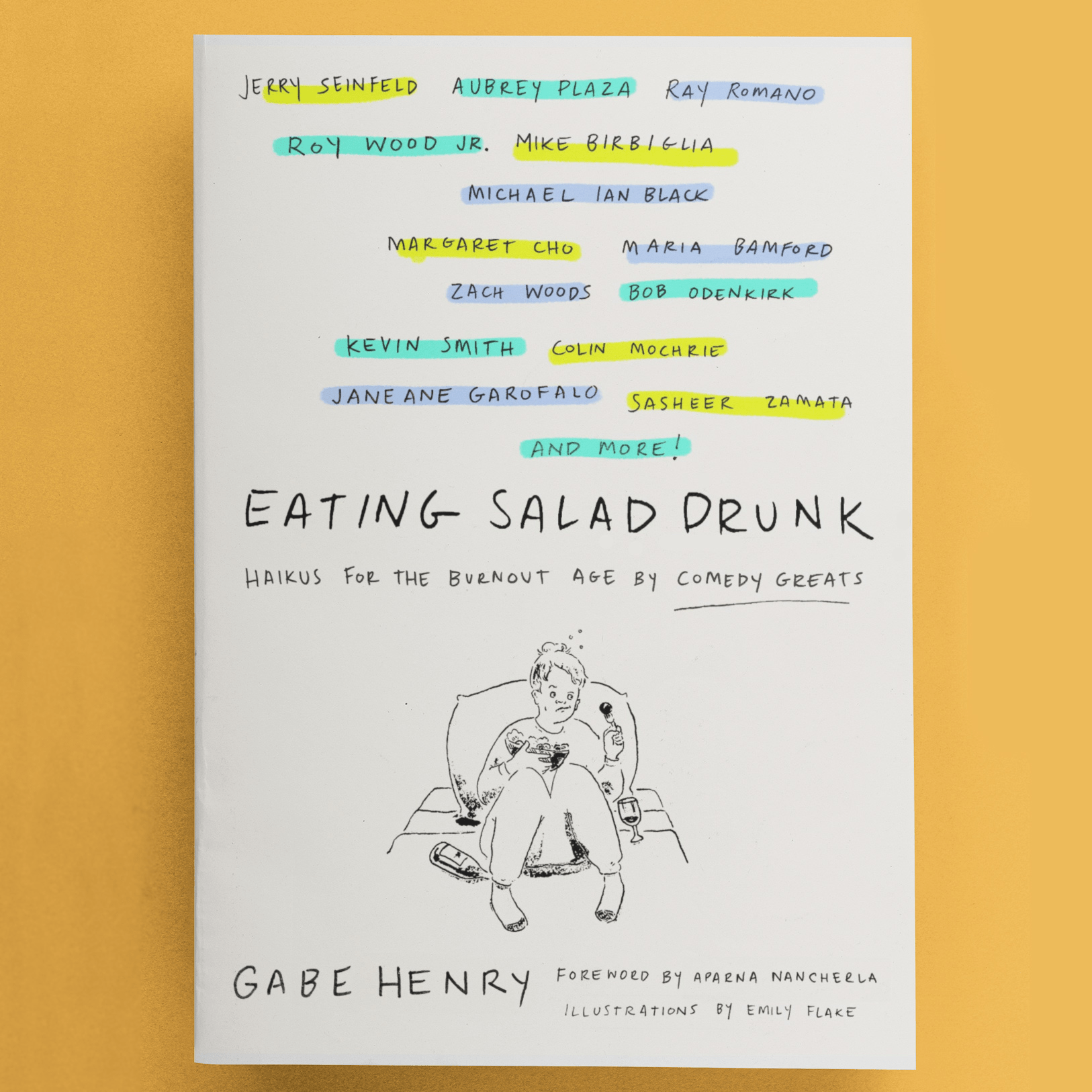
Copyright © 2021 by Gabe Henry

